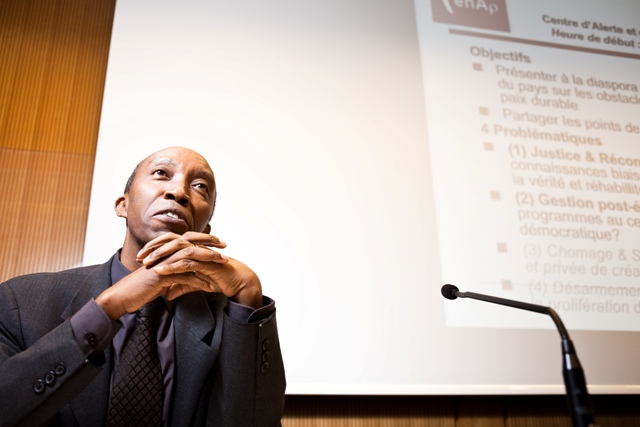Interpeace team in Burundi turns their attention to the diaspora based across Europe

To ensure long-term peace is not imposed from the outside and there is local ownership of solutions to conflict, Interpeace partners with local NGOs. Interpeace has been working in Burundi since 2007 with local NGO, the Centre d’Alerte et de Prévention des Conflits.
This October, the team from Burundi focused on their country’s diaspora living across Europe. Sessions were held in Geneva, Paris, Rotterdam and in two locations in Belgium and over 70 people participated.
Students, academics, religious leaders, temporary and salaried staff, representatives from the business community, caregivers and government representatives, living in Europe, all shared their different points of view on challenges to peace and ways to address them.
As with the Interpeace approach, video footage was shown during the diaspora meetings. People from across Burundi and from all backgrounds are featured in the video as they ‘unpack’ the issues and potential solutions for peace.
This encouraged the participants in the sessions in Europe to do the same.
Because Burundians from the diaspora are divided along ethnic lines and rarely come togehter, many participants thanked CENAP for the opportunity to meet and build bridges. For many of the diaspora it was the first time they shared their experiences, ideas and thoughts on solutions to the sensitive issues of:
- Transitional justice
- Poverty and unemployment
- Pre and post elections
The three themes had come out of the earlier ‘National Forum’ held last year in Burundi. In October 2008, over 200 representatives from all sectors of society gathered in Bujumbura and selected the most important obstacles to lasting peace. Since that meeting the CENAP researchers have been working on the three issues relating to peace in addition to the question of disarmament of the population .
The results from the constructive and animated discussions with the diaspora, which are part of the overall programme, will now provide important input into this overall process.























